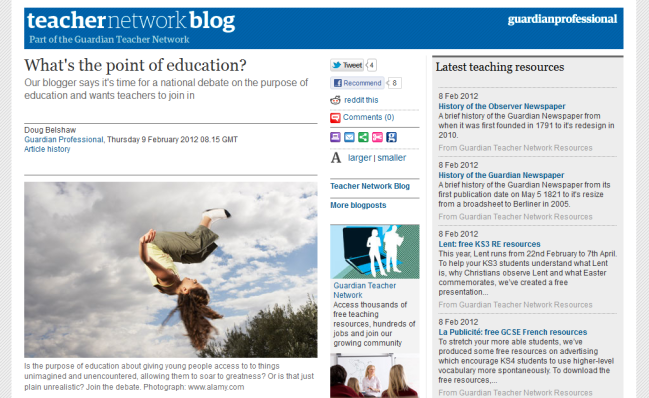Connected Learning: a new model of learning.

If you’re an educator, if you’re a student, if you’re a parent – in fact, if you’re someone who walks around with their eyes open, you’ll have noticed something. Educational experiences in school and educational experiences outside of school are very different.
So far, so obvious. But what can we do about it?
I’m currently in San Francisco at the MacArthur-funded Digital Media and Learning initiative’s annual conference, #DML2012. As regular readers will know, I blog for DMLcentral and am a big fan of DML’s work.
Today, DML launched an ‘interest-powered, peer-supported, and academically-oriented’ model of learning called Connected Learning. Having been privy to some of the development behind this, I’m excited by the possibilities it affords.
Connected Learning is based upon open networks with a shared purpose to help learners produce things. It’s focused on answering the following questions:
- What would it mean to think of education as a responsibility of a distributed network of people and institutions, including schools, libraries, museums and online communities?
- What would it mean to think of education as a process of guiding youths’ active participation in public life that includes civic engagement, and intellectual, social, recreational, and career-relevant pursuits?
- How can we take advantage of the new kinds of intergenerational configurations that have formed in which youth and adults come together to work, mobilize, share, learn, and achieve together?
- What would it mean to enlist in this effort a diverse set of stakeholders that are broader than what we traditionally think of as educational and civic institutions?
This is a great time to get involved, if you’re interested. Go here for more information: http://connectedlearning.tv
Not only is it a great model, but educational legends such as Mimi Ito and Mitch Resnick are behind it – and will be participating in weekly webinars!
(for more on my involvement in the DML Conference, head over to my conference blog and/or follow #DML2012 and @dajbconf on Twitter)


